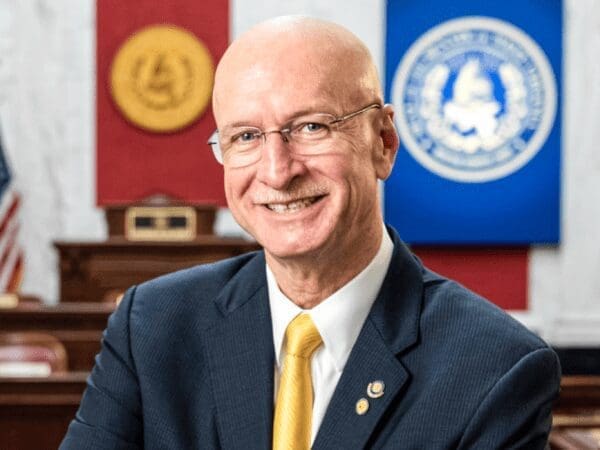There’s an old saying that goes, “with great freedom comes great responsibility.” In my mind, one of the best examples of that phrase is the relationship between the government and the media. It’s an adversarial relationship by nature because we co-exist in the same sphere of operating with great freedom and great responsibility.
You don’t have to like what the media reports. I’ll be honest – I often don’t. However, there’s a very clear difference between not liking what the media reports and actively working to silence them.
The actions this week by the DHHR and the management of West Virginia Public Broadcasting went too far, and it appears our Executive Branch has gone from largely refusing to cooperate with the media to actively undermining it.
A government that serves its people must respect the critical role a free press plays in the process. With that critical role comes responsibility on behalf of the media to be accurate and to leave political bias at the door.
While I cannot say that every reporter I have interacted with has been able to do that – and some have been downright dishonest in their reporting – I can say with confidence that was not the case here. In this case, a reporter did her job, did it fairly, told the truth, and seemed to pay a hefty price.
West Virginia Public Broadcasting reporter Amelia Knisely wrote about my letter to Governor Jim Justice calling for an investigation into DHHR’s policies and management of treatment for patients with disabilities in their care. Before we received a response from either the Governor’s office or DHHR about my concerns, former Secretary Crouch had already sent a letter to the executive director of Public Broadcasting demanding the story be retracted.
If those priorities sound a bit off to you, they are. West Virginia’s most vulnerable citizens are suffering, and they need our help. After what I’ve seen as this story unfolds, I continue to have the strong belief that the help they desperately need cannot come from the DHHR in its current form.
Transparency and accountability are critical to democracy. Our citizens deserve to know how their government operates, and I am proud of the Senate for the tools we have in place to keep our citizens informed. We live stream and video archive every meeting. We allow testimony before our committees to occur remotely. Every month, our Finance Committee publishes a General Revenue Collections report that gives a detailed picture of our state’s finances. Through our official social media, we make sure to share agendas, amendments, floor votes, and other real-time information as it happens.
We also communicate with the press, even when it makes us uncomfortable. Our staff fields numerous requests every week, sometimes taking hours to walk reporters through routine and complicated processes, explain bills, and help the media tell a fuller, more accurate story. This is not something you’ll see out of the Executive Branch. The Executive Branch operates in carefully constructed, made-for-TV media events where there is no give and take, and their agencies seldom respond to basic questions from the media. That behavior undermines the confidence in our government and our leaders.
The job of the media isn’t to make us comfortable. It’s to make us accountable. In turn, it’s not the job of the media to be opponents to everything we do, either. Respect is a two-way street, and we strive to be respectful above all things. Steven Allen Adams’s reporting about DHHR’s interference in the Public Broadcasting news department and pressure on it to silence negative stories is disturbing, and that behavior would not be tolerated in the Senate. I hope the Executive Branch disavows this blatant abuse of the First Amendment and holds the management of West Virginia Public Broadcasting responsible for it.


